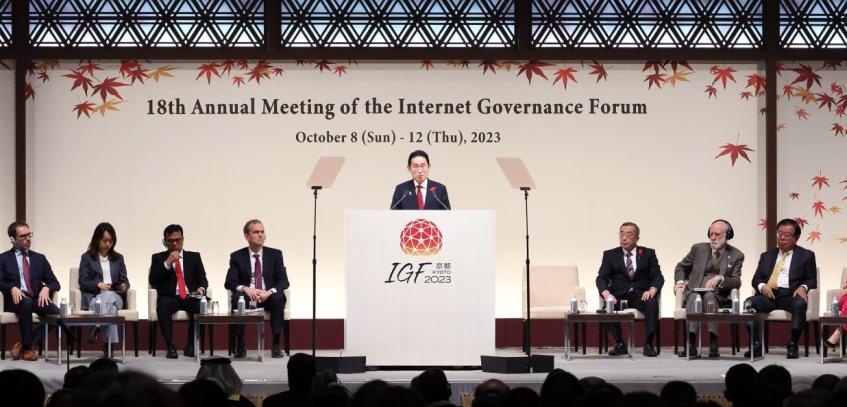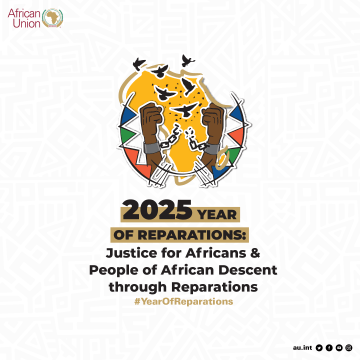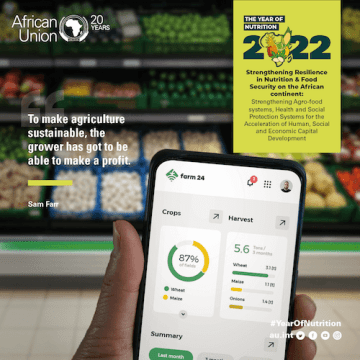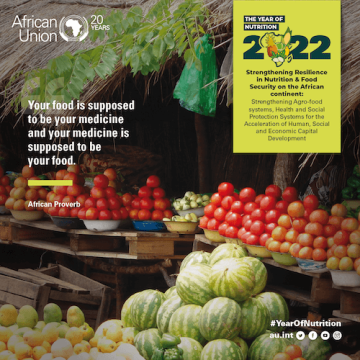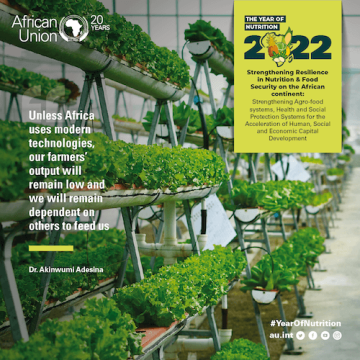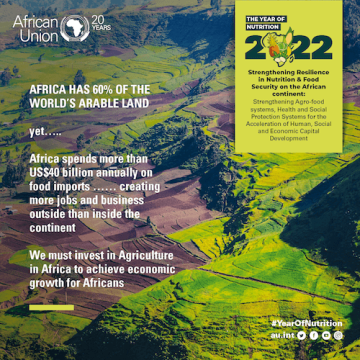Kyoto, Japan 8-12 October 2023 - The African Peer Review Mechanism (APRM) participated in the proceedings of the Annual Internet Governance Forum (IGF) 2023, which convened from October 8 to 12 in Kyoto, Japan. The APRM, a voluntary self-monitoring instrument with a core objective of promoting political stability, economic growth, and sustainable development across Africa, reaffirmed its unwavering commitment to bolstering digital governance on the continent. This dedication was emphasized during the 18th United Nations Internet Governance Forum (IGF), where bilateral discussions took place with key stakeholders such as UNDESA, major tech companies, and the Council of Europe (CoE), all of whom expressed their interest in collaborating with APRM to enhance digital governance capabilities and promote global cooperation.
Distinguished government representatives, industry leaders, and civil society organizations convened at IGF 2023 to collectively shape the digital future with a primary focus on openness, safety, and inclusivity. The overarching theme of the 18th IGF, "The Internet We Want – Empowering All People," highlights the critical role of digital technologies in addressing global challenges and promoting sustainable development.
Delegates at IGF 2023 shared valuable insights and experiences aimed at devising solutions for the challenges and opportunities presented by Africa's ongoing digital transformation. The event served as a platform for knowledge exchange with international partners, fostering discussions on a wide array of topics, including African National Digital Transformation Strategies, Cross-Border Data Flow, Cybersecurity, Digital Media, Information Literacy, Gender Digital Divide, Multi-Stakeholder processes to enhance digital cooperation, and South-South Cooperation.
As rapid technological advancements continue to reshape the digital landscape, APRM acknowledges the imperative to harness their benefits and effectively address the challenges faced by its member states. APRM is committed to sharing best practices in various domains with a particular focus on their impact on African governance.
The United Nations Secretary-General António Guterres, in his opening address to the IGF, emphasized the need to bridge the digital divide and adopt a human rights-oriented approach to digital cooperation, highlighting the UN Global Digital Compact as an opportunity for governments, the private sector, and civil society to unite and uphold these essential principles. Vint Cerf, Chair of the Internet Governance Forum (IGF) Leadership Panel, and Maria Ressa, Vice-Chair, further emphasized the pivotal role of digital governance in driving economic, social, and environmental progress.
This significant event brought together key stakeholders from around the world to deliberate on pressing global governance issues and foster international cooperation. The presence of Dr. Mcbride Nkhalamba and Jibril Ibrahim-Kano, representatives from the African Peer Review Mechanism (APRM) Secretariat, attending on behalf of Prof Eddy Maloka, CEO of APRM, underscored APRM's enduring commitment to the global discourse on governance, transparency, and international collaboration. The APRM's presence emphasized the organization's mission to promote good governance and contribute to the development of a more equitable and sustainable future.
In summarizing the significance of IGF 2023, Dr McBride Peter Nkhalamba, Ag Director of Governance and Specialized Reporting, highlighted APRM's ongoing efforts since 2018 to examine the implications of the 4th Industrial Revolution on Governance in Africa. The AU Assembly decision - Assembly/AU/Dec. 818(XXXV), reached at the 35th Ordinary Session of the Assembly in Addis Ababa, Ethiopia in February 2022, presided by H.E Cyril Matamela Ramaphosa, President of the Republic of South Africa and Chairperson of the Forum of Heads of State and Government of the APRM (APR Forum), elevated the significance of this question.
IGF 2023 explored critical themes such as Artificial Intelligence and Emerging Technologies, Global Digital Governance and Cooperation, Data Governance and Trust, Human Rights and Freedoms Sustainability, and Environment. These themes are crucial in understanding how the 4th Industrial Revolution impacts governance in Africa, particularly concerning the interaction of political and economic communities.
Dr Nkhalamba emphasized that artificial intelligence, data, digital governance, and emerging technologies are central to political participation in processes such as elections and are key to e-government as a platform for public service delivery. He noted that technology and artificial intelligence will reshape how societies define state responsiveness and citizen freedoms, with implications for access to information, disinformation, and misinformation, all of which are essential for the realization of African Union aspirations for self-determination and development.
APRM's unwavering commitment to advancing governance in Africa and its evolving role in shaping global digital governance frameworks, while fostering collaboration at global, regional, and national levels, remains steadfast. APRM is eagerly looking forward to making significant contributions to the responsible and effective governance of digital technologies in Africa. An upcoming opportunity for APRM to facilitate continued engagement and collaboration on the impact of the rapid advancement of technology on governance lies in the forthcoming Internet Governance Forum scheduled for Saudi Arabia in 2024.
Furthermore, the Council of Europe (CoE) has extended an invitation to AU-APRM to co-organize a meeting on the sidelines of the ICANN80 Policy Forum, set to take place from June 10 to 13, 2024. UNDESA has also expressed a keen interest in collaborating to strengthen the capabilities of African member states in addressing the confluence of technology and governance.
For further inquiries, please contact us:
About the African Peer Review Mechanism (APRM)
The African Peer Review Mechanism (APRM) is a mutually agreed instrument for member countries to voluntarily self-monitor their compliance with agreed international and continental governance standards. The APRM's vision is to build an Africa that is prosperous, peaceful, democratic, and sustainable. It aims to foster the adoption of policies, standards, and practices that lead to political stability, high economic growth, sustainable development, and accelerated regional and continental economic integration.

